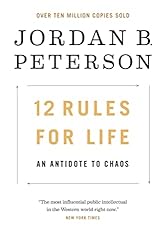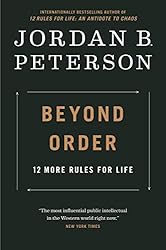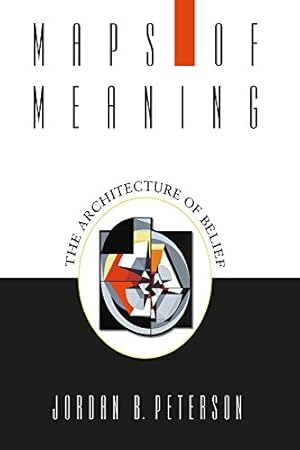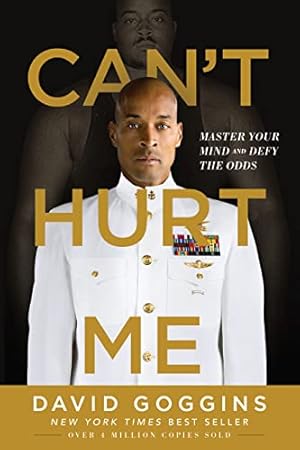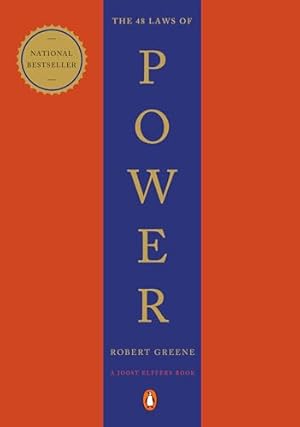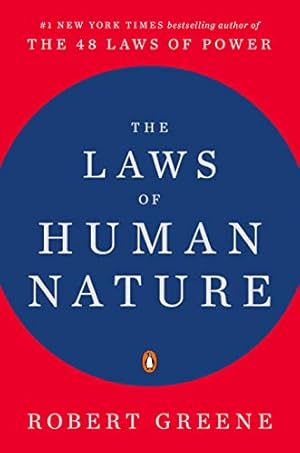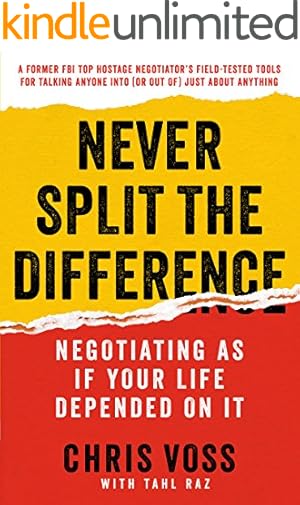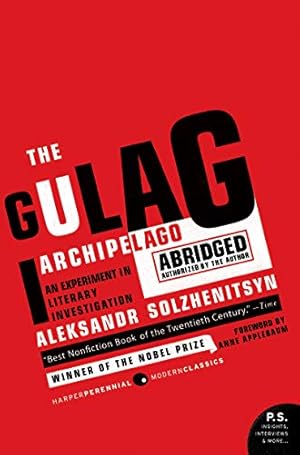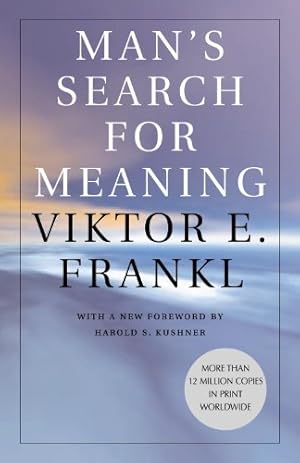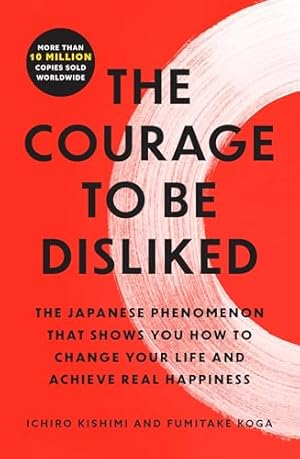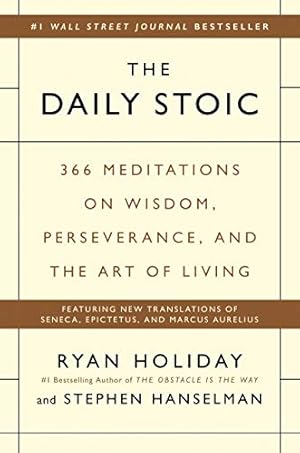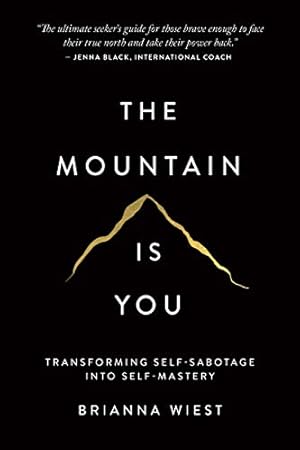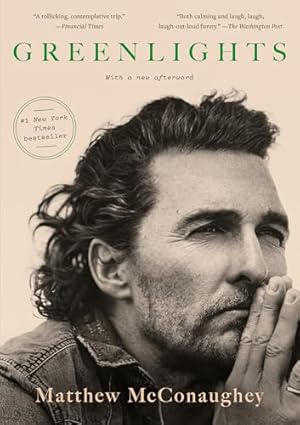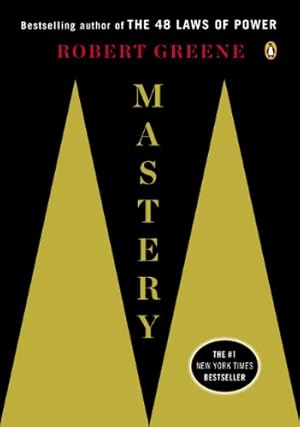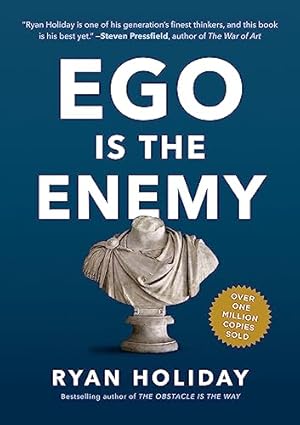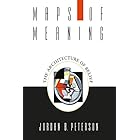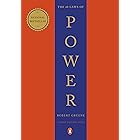| Print List Price: | $32.00 |
| Kindle Price: | $16.99 Save $15.01 (47%) |
| Sold by: | Random House LLC Price set by seller. |
Your Memberships & Subscriptions

Download the free Kindle app and start reading Kindle books instantly on your smartphone, tablet, or computer - no Kindle device required.
Read instantly on your browser with Kindle for Web.
Using your mobile phone camera - scan the code below and download the Kindle app.

Image Unavailable
Color:
-

-
-
- To view this video download Flash Player


 Audible sample
Audible sample Follow the author
OK
12 Rules for Life: An Antidote to Chaos Kindle Edition
#1 INTERNATIONAL BESTSELLER
What are the most valuable things that everyone should know?
Acclaimed clinical psychologist Jordan B Peterson has influenced the modern understanding of personality, and now he has become one of the world's most popular public thinkers, with his lectures on topics from the Bible to romantic relationships to mythology drawing tens of millions of viewers. In an era of unprecedented change and polarizing politics, his frank and refreshing message about the value of individual responsibility and ancient wisdom has resonated around the world.
In this book, he provides twelve profound and practical principles for how to live a meaningful life, from setting your house in order before criticising others to comparing yourself to who you were yesterday, not someone else today. Happiness is a pointless goal, he shows us. Instead we must search for meaning, not for its own sake, but as a defence against the suffering that is intrinsic to our existence.
Drawing on vivid examples from the author's clinical practice and personal life, cutting-edge psychology and philosophy, and lessons from humanity's oldest myths and stories, 12 Rules for Life offers a deeply rewarding antidote to the chaos in our lives: eternal truths applied to our modern problems.
- LanguageEnglish
- PublisherRandom House Canada
- Publication dateJanuary 23, 2018
- File size19858 KB
Shop this series
See full series-
All 2$31.98
-
All 2$31.98
This option includes 2 books.
Customers also bought or read
- We Who Wrestle with God: Perceptions of the Divine#1 Best SellerChristian Old Testament Meditations
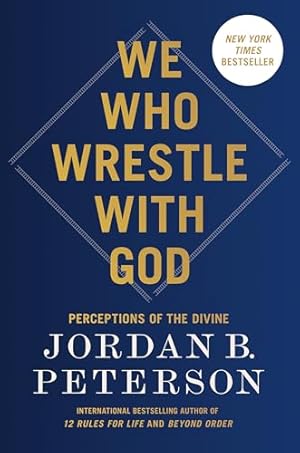 Kindle Edition$15.99$15.99
Kindle Edition$15.99$15.99 - Endure: How to Work Hard, Outlast, and Keep Hammering#1 Best SellerSports Hunting
 Kindle Edition$16.99$16.99
Kindle Edition$16.99$16.99 - Outlive: The Science and Art of Longevity#1 Best SellerAging Self-Help eBooks
 Kindle Edition$13.99$13.99
Kindle Edition$13.99$13.99
Customers who bought this item also bought
 So, attend carefully to your posture. Quit drooping and hunching around. Speak your mind. Put your desires forward, as if you had a right to them—at least the same right as others. Walk tall and gaze forthrightly ahead. Dare to be dangerous. Encourage the serotonin to flow plentifully through the neural pathways desperate for its calming influence.Highlighted by 33,627 Kindle readers
So, attend carefully to your posture. Quit drooping and hunching around. Speak your mind. Put your desires forward, as if you had a right to them—at least the same right as others. Walk tall and gaze forthrightly ahead. Dare to be dangerous. Encourage the serotonin to flow plentifully through the neural pathways desperate for its calming influence.Highlighted by 33,627 Kindle readers There is very little difference between the capacity for mayhem and destruction, integrated, and strength of character. This is one of the most difficult lessons of life.Highlighted by 31,216 Kindle readers
There is very little difference between the capacity for mayhem and destruction, integrated, and strength of character. This is one of the most difficult lessons of life.Highlighted by 31,216 Kindle readers It is far better to render Beings in your care competent than to protect them.Highlighted by 18,922 Kindle readers
It is far better to render Beings in your care competent than to protect them.Highlighted by 18,922 Kindle readers Because these really are rules. And the foremost rule is that you must take responsibility for your own life. Period.Highlighted by 14,165 Kindle readers
Because these really are rules. And the foremost rule is that you must take responsibility for your own life. Period.Highlighted by 14,165 Kindle readers
Editorial Reviews
Review
“Jordan Peterson, has become one of the best-known Canadians of this generation. In the intellectual category, he’s easily the largest international phenomenon since Marshall McLuhan. . . . By combining knowledge of the past with a full-hearted optimism and a generous attitude toward his readers and listeners, Peterson generates an impressive level of intellectual firepower.” —Robert Fulford, National Post
“Like the best intellectual polymaths, Peterson invites his readers to embark on their own intellectual, spiritual and ideological journeys into the many topics and disciplines he touches on. It’s a counter-intuitive strategy for a population hooked on the instant gratification of ideological conformity and social media ‘likes,’ but if Peterson is right, you have nothing to lose but your own misery.” —Toronto Star
“In a different intellectual league. . . . Peterson can take the most difficult ideas and make them entertaining. This may be why his YouTube videos have had 35 million views. He is fast becoming the closest that academia has to a rock star.” —The Observer
“Grow up and man up is the message from this rock-star psychologist. . . . [A] hardline self-help manual of self-reliance, good behaviour, self-betterment and individualism that probably reflects his childhood in rural Canada in the 1960s. As with all self-help manuals, there’s always a kernel of truth. Formerly a Harvard professor, now at the University of Toronto, Peterson retains that whiff of cowboy philosophy—one essay is a homily on doing one thing every day to improve yourself. Another, on bringing up little children to behave, is excellent…. [Peterson] twirls ideas around like a magician.” —Melanie Reid, The Times
“You don’t have to agree with [Peterson’s politics] to like this book for, once you discard the self-help label, it becomes fascinating. Peterson is brilliant on many subjects. . . . So what we have here is a baggy, aggressive, in-your-face, get-real book that, ultimately, is an attempt to lead us back to what Peterson sees as the true, the beautiful and the good—i.e. God. In the highest possible sense of the term, I suppose it is a self-help book. . . . Either way, it’s a rocky read, but nobody ever said God was easy.” —Bryan Appleyard, The Times
“One of the most eclectic and stimulating public intellectuals at large today, fearless and impassioned.” —The Guardian
“Someone with not only humanity and humour, but serious depth and substance. . . . Peterson has a truly cosmopolitan and omnivorous intellect, but one that recognizes that things need grounding in a home if they are ever going to be meaningfully grasped. . . . As well as being funny, there is a burning sincerity to the man which only the most withered cynic could suspect.” —The Spectator
“Peterson has become a kind of secular prophet who, in an era of lobotomized conformism, thinks out of the box. . . . His message is overwhelmingly vital.” —Melanie Philips, The Times
About the Author
Excerpt. © Reprinted by permission. All rights reserved.
It does not seem reasonable to describe the young man who shot twenty children and six staff members at Sandy Hook Elementary School in Newtown, Connecticut, in 2012 as a religious person. This is equally true for the Colorado theatre gunman and the Columbine High School killers. But these murderous individuals had a problem with reality that existed at a religious depth. As one of the members of the Columbine duo wrote:
"The human race isn’t worth fighting for, only worth killing. Give the Earth back to the animals. They deserve it infinitely more than we do. Nothing means anything anymore."
People who think such things view Being itself as inequitable and harsh to the point of corruption, and human Being, in particular, as contemptible. They appoint themselves supreme adjudicators of reality and find it wanting. They are the ultimate critics. The deeply cynical writer continues:
"If you recall your history, the Nazis came up with a 'final solution' to the Jewish problem. . . . Kill them all. Well, in case you haven’t figured it out, I say 'KILL MANKIND.' No one should survive."
For such individuals, the world of experience is insufficient and evil—so to hell with everything!
What is happening when someone comes to think in this manner? A great German play, Faust: A Tragedy, written by Johann Wolfgang von Goethe, addresses that issue. The play’s main character, a scholar named Heinrich Faust, trades his immortal soul to the devil, Mephistopheles. In return, he receives whatever he desires while still alive on Earth. In Goethe’s play, Mephistopheles is the eternal adversary of Being. He has a central, defining credo:
"I am the spirit who negates
and rightly so, for all that comes to be
deserves to perish, wretchedly.
It were better nothing would begin!
Thus everything that your terms sin,
destruction, evil represent—
that is my proper element."
Goethe considered this hateful sentiment so important—so key to the central element of vengeful human destructiveness—that he had Mephistopheles say it a second time, phrased somewhat differently, in Part II of the play, written many years later.
People think often in the Mephistophelean manner, although they seldom act upon their thoughts as brutally as the mass murderers of school, college and theatre. Whenever we experience injustice, real or imagined; whenever we encounter tragedy or fall prey to the machinations of others; whenever we experience the horror and pain of our own apparently arbitrary limitations—the temptation to question Being and then to curse it rises foully from the darkness. Why must innocent people suffer so terribly? What kind of bloody, horrible planet is this, anyway?
Life is in truth very hard. Everyone is destined for pain and slated for destruction. Sometimes suffering is clearly the result of a personal fault such as willful blindness, poor decision-making or malevolence. In such cases, when it appears to be self-inflicted, it may even seem just. People get what they deserve, you might contend. That’s cold comfort, however, even when true. Sometimes, if those who are suffering changed their behaviour, then their lives would unfold less tragically. But human control is limited. Susceptibility to despair, disease, aging and death is universal. In the final analysis, we do not appear to be the architects of our own fragility. Whose fault is it, then?
People who are very ill (or, worse, who have a sick child) will inevitably find themselves asking this question, whether they are religious believers or not. The same is true of someone who finds his shirtsleeve caught in the gears of a giant bureaucracy—who is suffering through a tax audit, or fighting an interminable lawsuit or divorce. And it’s not only the obviously suffering who are tormented by the need to blame someone or something for the intolerable state of their Being. At the height of his fame, influence and creative power, for example, the towering Leo Tolstoy himself began to question the value of human existence. He reasoned in this way:
"My position was terrible. I knew that I could find nothing in the way of rational knowledge except a denial of life; and in faith I could find nothing except a denial of reason, and this was even more impossible than a denial of life. According to rational knowledge, it followed that life is evil, and people know it. They do not have to live, yet they have lived and they do live, just as I myself had lived, even though I had known for a long time that life is meaningless and evil."
Try as he might, Tolstoy could identify only four means of escaping from such thoughts. One was retreating into childlike ignorance of the problem. Another was pursuing mindless pleasure. The third was "continuing to drag out a life that is evil and meaningless, knowing beforehand that nothing can come of it." He identified that particular form of escape with weakness: "The people in this category know that death is better than life, but they do not have the strength to act rationally and quickly put an end to the delusion by killing themselves. . . ."
Only the fourth and final mode of escape involved "strength and energy. It consists of destroying life, once one has realized that life is evil and meaningless." Tolstoy relentlessly followed his thoughts:
"Only unusually strong and logically consistent people act in this manner. Having realized all the stupidity of the joke that is being played on us and seeing that the blessings of the dead are greater than those of the living and that it is better not to exist, they act and put an end to this stupid joke; and they use any means of doing it: a rope around the neck, water, a knife in the heart, a train."
Tolstoy wasn’t pessimistic enough. The stupidity of the joke being played on us does not merely motivate suicide. It motivates murder—mass murder, often followed by suicide. That is a far more effective existential protest. By June of 2016, unbelievable as it may seem, there had been one thousand mass killings (defined as four or more people shot in a single incident, excluding the shooter) in the US in twelve hundred and sixty days. That’s one such event on five of every six days for more than three years. Everyone says, "We don’t understand." How can we still pretend that? Tolstoy understood, more than a century ago. The ancient authors of the biblical story of Cain and Abel understood, as well, more than twenty centuries ago. They described murder as the first act of post-Edenic history: and not just murder, but fratricidal murder—murder not only of someone innocent but of someone ideal and good, and murder done consciously to spite the creator of the universe. Today’s killers tell us the same thing, in their own words. Who would dare say that this is not the worm at the core of the apple? But we will not listen, because the truth cuts too close to the bone. Even for a mind as profound as that of the celebrated Russian author, there was no way out. How can the rest of us manage, when a man of Tolstoy’s stature admits defeat? For years, he hid his guns from himself and would not walk with a rope in hand, in case he hanged himself.
How can a person who is awake avoid outrage at the world?
Product details
- ASIN : B01FPGY5T0
- Publisher : Random House Canada (January 23, 2018)
- Publication date : January 23, 2018
- Language : English
- File size : 19858 KB
- Text-to-Speech : Enabled
- Screen Reader : Supported
- Enhanced typesetting : Enabled
- X-Ray : Enabled
- Word Wise : Enabled
- Print length : 416 pages
- Best Sellers Rank: #8,109 in Kindle Store (See Top 100 in Kindle Store)
- #1 in Applied Psychology
- #3 in Social Philosophy
- #18 in Personal Transformation
- Customer Reviews:
Videos
Videos for this product

1:58
Click to play video

12 Essential Rules To Help You Master Your Life
Atomic Readers

About the author

Jordan Peterson is a Canadian clinical psychologist, cultural critic, and professor of psychology at the University of Toronto. His main areas of study are the psychology of religious and ideological belief, and the assessment and improvement of personality and performance.
From 1993 to 1997, Peterson lived in Arlington, Massachusetts, while teaching and conducting research at Harvard University as an assistant and an associate professor in the psychology department. During his time at Harvard, he studied aggression arising from drug and alcohol abuse, and supervised a number of unconventional thesis proposals. Afterwards, he returned to Canada and took up a post as a professor at the University of Toronto.
In 1999, Routledge published Peterson's Maps of Meaning: The Architecture of Belief. The book, which took Peterson 13 years to complete, describes a comprehensive theory for how we construct meaning, represented by the mythical process of the exploratory hero, and provides an interpretation of religious and mythical models of reality presented in a way that is compatible with modern scientific understanding of how the brain works. It synthesizes ideas drawn from narratives in mythology, religion, literature and philosophy, as well as research from neuropsychology, in "the classic, old-fashioned tradition of social science."
Peterson's primary goal was to examine why individuals, not simply groups, engage in social conflict, and to model the path individuals take that results in atrocities like the Gulag, the Auschwitz concentration camp and the Rwandan genocide. Peterson considers himself a pragmatist, and uses science and neuropsychology to examine and learn from the belief systems of the past and vice versa, but his theory is primarily phenomenological. In the book, he explores the origins of evil, and also posits that an analysis of the world's religious ideas might allow us to describe our essential morality and eventually develop a universal system of morality.
Harvey Shepard, writing in the Religion column of the Montreal Gazette, stated: "To me, the book reflects its author's profound moral sense and vast erudition in areas ranging from clinical psychology to scripture and a good deal of personal soul searching. ... Peterson's vision is both fully informed by current scientific and pragmatic methods, and in important ways deeply conservative and traditional."
In 2004, a 13-part TV series based on his book Maps of Meaning: The Architecture of Belief aired on TVOntario. He has also appeared on that network on shows such as Big Ideas, and as a frequent guest and essayist on The Agenda with Steve Paikin since 2008.
In 2013, Peterson began recording his lectures ("Personality and Its Transformations", "Maps of Meaning: The Architecture of Belief") and uploading them to YouTube. His YouTube channel has gathered more than 600,000 subscribers and his videos have received more than 35 million views as of January 2018. He has also appeared on The Joe Rogan Experience, The Gavin McInnes Show, Steven Crowder's Louder with Crowder, Dave Rubin's The Rubin Report, Stefan Molyneux's Freedomain Radio, h3h3Productions's H3 Podcast, Sam Harris's Waking Up podcast, Gad Saad's The Saad Truth series and other online shows. In December 2016, Peterson started his own podcast, The Jordan B. Peterson Podcast, which has 37 episodes as of January 10, 2018, including academic guests such as Camille Paglia, Martin Daly, and James W. Pennebaker, while on his channel he has also interviewed Stephen Hicks, Richard J. Haier, and Jonathan Haidt among others. In January 2017, he hired a production team to film his psychology lectures at the University of Toronto.
Peterson with his colleagues Robert O. Pihl, Daniel Higgins, and Michaela Schippers produced a writing therapy program with series of online writing exercises, titled the Self Authoring Suite. It includes the Past Authoring Program, a guided autobiography; two Present Authoring Programs, which allow the participant to analyze their personality faults and virtues in terms of the Big Five personality model; and the Future Authoring Program, which guides participants through the process of planning their desired futures. The latter program was used with McGill University undergraduates on academic probation to improve their grades, as well since 2011 at Rotterdam School of Management, Erasmus University. The Self Authoring Programs were developed partially from research by James W. Pennebaker at the University of Texas at Austin and Gary Latham at the Rotman School of Management of the University of Toronto. Pennebaker demonstrated that writing about traumatic or uncertain events and situations improved mental and physical health, while Latham demonstrated that personal planning exercises help make people more productive. According to Peterson, more than 10,000 students have used the program as of January 2017, with drop-out rates decreasing by 25% and GPAs rising by 20%.
In May 2017 he started new project, titled "The psychological significance of the Biblical stories", a series of live theatre lectures in which he analyzes archetypal narratives in Genesis as patterns of behaviour vital for both personal, social and cultural stability.
His upcoming book "12 Rules for Life: An Antidote to Chaos" will be released on January 23rd, 2018. It was released in the UK on January 16th. Dr. Peterson is currently on tour throughout North America, Europe and Australia.
Customer reviews
Customer Reviews, including Product Star Ratings help customers to learn more about the product and decide whether it is the right product for them.
To calculate the overall star rating and percentage breakdown by star, we don’t use a simple average. Instead, our system considers things like how recent a review is and if the reviewer bought the item on Amazon. It also analyzed reviews to verify trustworthiness.
Learn more how customers reviews work on AmazonCustomers say
Customers find the book easy to read and well-received. They appreciate the insightful wisdom and philosophy from the author. Readers praise the author as brilliant and a great human being. They find the advice honest and true, with observable evidence backing up every claim. The book explores mythology and religious themes, providing an understanding of ancient archetypes. Overall, customers appreciate the depth of the analysis and how it helps improve their lives.
AI-generated from the text of customer reviews
Customers find the book engaging and well-written. They say it's an important read with interesting anecdotes and a well-argued narrative.
"...Language takes chaos and makes it into a ‘thing.’..." Read more
"...of psychology, philosophy, and personal anecdotes creates an engaging narrative that resonates deeply with readers...." Read more
"...It was a lot to absorb in every chapter. I found the prologue, which was not written by Peterson, ridiculously detailed and overdone...." Read more
"...Peterson should also be commended for his commitment to not indulge readers’ base emotions, but to encourage individuals to self-reflect...." Read more
Customers find the book insightful and thought-provoking. It blends psychology, philosophy, and personal anecdotes to provide advice that resonates on multiple levels. Readers appreciate Peterson's deep knowledge of psychology and human behavior. The book is a great start to introspection and provides excellent guidance for anyone who wants to lead. They feel inspired and dove deeper into themselves after reading it.
"...12 Rules for Life is an interesting book. Equal parts philosophy, psychology, and self-help book, it covers a broad range of topics, with Peterson..." Read more
"...He has opinions. I don't always agree with them. But he is genuinely expressing himself, and the belief that we should all try to be better...." Read more
"...It covers his twelve rules for life, which are intended not only as a guide for life of the individual, but as a remedy for society’s present ills...." Read more
"...Peterson’s blend of psychology, philosophy, and personal anecdotes creates an engaging narrative that resonates deeply with readers...." Read more
Customers praise the author as brilliant, amazing, and a great human being. They enjoy his work and find him gifted and passionate. Readers describe him as one of the greatest men in modern history and a source for strong, capable people.
"...He is a very gifted and passionate storyteller and I hope he continues the conversation...." Read more
"...informed by his deep understanding of psychology, philosophy, and literature, that is deeply thoughtful, at times funny..." Read more
"It was super interesting and I always enjoy Jordan Peterson's work." Read more
"...In this era of fakeness, Peterson is earnest, sincere, impassioned, vulnerable, determined to make himself understood, resonant with dimension, soul..." Read more
Customers appreciate the author's honesty. They say he keeps facts straight and backs up every claim with observable evidence. The advice is considered truthful and correct on some deep levels. Readers find the principles conveyed in the book solid and true to life.
"...In this era of fakeness, Peterson is earnest, sincere, impassioned, vulnerable, determined to make himself understood, resonant with dimension, soul..." Read more
"...I can recommend to readers who are interested in psychological health, truth, and philosophical sanity...." Read more
"...standing with confidence, comparing yourself only to yourself, telling the truth, enjoying the small things in life, and more...." Read more
"...Not sure why he’s controversial, he is really insightful and simply works off facts. I truly believe he wants the best for everyone ...." Read more
Customers appreciate the book's mythology. They find it insightful and well-researched, bringing together religious, philosophical, and scientific ideas. The author uses examples from Egyptian, Babylonian, Buddhist, and popular mythologies to illustrate how those stories connect with biological, psychological, and historical data.
"...Peterson's deft weaving of theology, mythology, and just overall cogent arguments and viewpoints made me really respect and open up my mind to..." Read more
"...It's a particularly good and effective metaphor because it just so happens that the human nervous system and the lobster nervous system both run on..." Read more
"...science, research-derived psychological data, and the continuous centuries-long narrative that humans have transmitted through story and culture as..." Read more
"...They are complicated, sometimes a little indirect, and mired in allegory. This makes them more valuable, if anything...." Read more
Customers appreciate the book's depth. They find it incredibly deep yet simplified. It helps them understand their troubling thoughts and life issues. The book is a treasure trove of deep thought and agonizing realizations, inspiring readers to go deeper into themselves.
"...I loved it; I was inspired and dove deeper into myself...." Read more
"...be quickly and easily digested yet which has sufficient depth to withstand multiple readings...." Read more
"...himself, anecdotal, funny, silly, chatty, angry, idiosyncratic, deep as the ocean...." Read more
"...There are drawn-out tangents, seemingly out of place stories and some chapters are more chaotic than others...." Read more
Customers find the book provides valuable information and is reasonably priced. They appreciate the author's clear presentation of his views and how it considers Christianity.
"...The rules are not just theoretical; they offer real, actionable advice that can be applied to everyday life...." Read more
"...This is not a lightweight book. It’s valuable. It’s meaningful...." Read more
"...contains very insightful data, and a few chapters alone are worth the price of the book...." Read more
"...He was calm, rational, reasonable and was able to convey his point of view with a conversation...." Read more
Customers have mixed opinions about the religious content. Some find it philosophical and moral, with thoughtful and precise words. They describe it as the most important book by a secular author they have read. Others feel the biblical sermons are questionable and hard to swallow. The theology isn't perfect and inconsistent with Christianity, and they dislike how the biblical stories are portrayed.
"...drawing from life experiences, religion, and history to build a strong case for his points and provide what seems on its surface to be very good..." Read more
"...'s theological ideas, but I will say this: he often reads too much in the biblical texts and sometimes doesn't read enough in them...." Read more
"...though he is not a Christian at this point, he does hold a high respect for Jesus and thinks there is a lot of wisdom in the Bible...." Read more
"...His theology isn't perfect, and hasn't necessarily mined the great scholars of the Bible...." Read more
Reviews with images
The most influential book I have read this year! From a liberal.
Top reviews from the United States
There was a problem filtering reviews right now. Please try again later.
- Reviewed in the United States on April 2, 2018I took about a month to finish Jordan Peterson's 12 Rules for Life: An Antidote to Chaos, in part because I wanted to slow down and try some of the advice in my life.
12 Rules for Life is an interesting book. Equal parts philosophy, psychology, and self-help book, it covers a broad range of topics, with Peterson drawing from life experiences, religion, and history to build a strong case for his points and provide what seems on its surface to be very good advice for people.
This is where Peterson's background as a clinical psychologist comes in handy. 12 Rules for Life is billed as an "antidote to chaos", and that is what its primary focus is. It's not great at helping you be more successful if you're disciplined and self-reliant already. As someone who always struggled with grasping the world, however, I found it very helpful.
Since I started reading this book, I lost 12 pounds, went from writing five hundred words a day to three thousand words a day, started waking up earlier in the morning consistently, and have been much happier.
Some of that is attributable to the fact that I was already willing to make changes, and many of the things I was doing were obviously bad ideas.
But there is something to be said for the lessons Peterson teaches. They are complicated, sometimes a little indirect, and mired in allegory. This makes them more valuable, if anything. Peterson doesn't use a magic formula, he uses principles of right action. This book provides general ideas and positions that can serve as a great tool to understanding how people think and why things go wrong.
Not everyone will agree with it. There is a chapter in the book where Peterson reflects on the fact that he has opportunities with clients where he could tell them one thing or another and their minds would make it to be total truth either way.
Perhaps that is what Peterson has done here: perhaps most systems like this are sufficient to improve lives if brought diligently into practice.
Or perhaps there is something to Peterson's words. His indictment of meaninglessness and his calls to purpose echo soundly throughout the book. There have been those who say that Peterson's calls for people to get themselves organized and his oft-mystical language is a cover for something sinister.
But I don't think they've ever really listened to him.
Approaching Peterson a skeptic, I was not sure that reading a book would have the power to change anything in my life. The first few chapters were met with nods, hesitancy, and the concession of points that sounded good. I wasn't hostile to him, and I found many of his points quite clever.
But when Peterson delved deeper into the archetypes and depth psychology I became suspicious. I had a moderate distrust of the Jungian method; I use it to teach literature, but I did not believe in using archetypes to assess personality.
Peterson's point is that we are all part of something great and interconnected. Because it is so massive, we need to be working to make sense of it. It won't happen automatically, and if we go for an easy explanation we may find ourselves walking dark, treacherous paths of misanthropy and rejection.
We are complicated pieces in an even more complicated puzzle. Peterson's approach is one of self improvement. When we take steps to sort ourselves out, we also need to enter a symbiotic process of bringing order to our world.
The purpose of this is not to achieve some sort of superiority. It is to achieve survival. The world will change, and we will be forced to adapt.
Peterson states that "life is tragic." His point is that people need to be ready to deal with adversity. Anyone can handle good times, because that's what we are able to rest and relax during. The true test of a person comes when they lose a loved one or a job or their health. They need to make a decision: what will they do in response.
Peterson uses haunting examples to illustrate what happens when this goes wrong. Using everything from Dostoevsky to the Soviet Union (and countless other insights from modern and historical figures), he creates case studies of what happens when things go wrong and people turn to dysfunction rather than improving their situation.
His 12 Rules serve as a guide on how to go from that point of failure to a point of redemption, offering a series of suggestions and guidelines to take a life that is becoming corrupted by hatred of the world and everything in it and turn it into a vessel for growth and self-improvement.
Is it a perfect guide to living life? No.
Is it helpful? Does it give insight to great truths? Yes.
- Reviewed in the United States on November 11, 2018I will admit this right off the bat. I knew nothing of Jordan Peterson, or any of his ideology before reading this book. I must have existed in a vacuum, as I merely picked this book up as it was given as an "Amazon Recommends."
Curious about the title, I purchased on impulse.
I am very glad I did.
I am not Jordan Peterson's "supposed" target audience. (I used supposed because I don't think he actually claims to have one).
I am a liberal, Asian, left leaning moderate with a background in philosophy, theology and film studies. I support the women's right movement, equal pay, and I find the Republican party of today rather distasteful for the anti-science movement they espouse.
That being said, this book spoke to me. It is not an easy read. I had to re-read chapters slowly to fully condense my thoughts. I agree with the critical review that stated you have to be intellectually equipped to really get the most out of this. I had to utilize my background in philosophy and religion to go beyond the surface of what the author was trying to say. This is not a book you can listen to at 2x speed on Audible and hope to retain anything, imo. You need to digest this.
That being said...
Peterson's deft weaving of theology, mythology, and just overall cogent arguments and viewpoints made me really respect and open up my mind to things I never fully thought about. I find it laughable that a Harvard professor/psychologist has been embraced by the "alt-right" when even a moderately close reading of this text repudiates all that they stand for.
Peterson is direct. He has opinions. I don't always agree with them. But he is genuinely expressing himself, and the belief that we should all try to be better. We should all try to be more compassionate, and most of all, we all should try to understand our humanity a little more each and every there.
There's no division in this book; there's just deep anguish at the current state of humanity and its capacity for evil. There's some exasperation at the way things are currently constructed in society that is in many ways lost. And most of all, there's compassion and a belief that if we all got together in a room and truly talked, the world would be a better place.
I would shy away from the noise around Peterson in the headlines, on Youtube, and in how the idealogues use him (or even his own personal media narrative) to justify their twisted beliefs. Don't let the fact that the "Alt-Right" has co-opted this man to make him a mascot.
Just read the book independently and make your own judgments. You'll be glad you did.
 5.0 out of 5 stars The most influential book I have read this year! From a liberal.I will admit this right off the bat. I knew nothing of Jordan Peterson, or any of his ideology before reading this book. I must have existed in a vacuum, as I merely picked this book up as it was given as an "Amazon Recommends."
5.0 out of 5 stars The most influential book I have read this year! From a liberal.I will admit this right off the bat. I knew nothing of Jordan Peterson, or any of his ideology before reading this book. I must have existed in a vacuum, as I merely picked this book up as it was given as an "Amazon Recommends."
Reviewed in the United States on November 11, 2018
Curious about the title, I purchased on impulse.
I am very glad I did.
I am not Jordan Peterson's "supposed" target audience. (I used supposed because I don't think he actually claims to have one).
I am a liberal, Asian, left leaning moderate with a background in philosophy, theology and film studies. I support the women's right movement, equal pay, and I find the Republican party of today rather distasteful for the anti-science movement they espouse.
That being said, this book spoke to me. It is not an easy read. I had to re-read chapters slowly to fully condense my thoughts. I agree with the critical review that stated you have to be intellectually equipped to really get the most out of this. I had to utilize my background in philosophy and religion to go beyond the surface of what the author was trying to say. This is not a book you can listen to at 2x speed on Audible and hope to retain anything, imo. You need to digest this.
That being said...
Peterson's deft weaving of theology, mythology, and just overall cogent arguments and viewpoints made me really respect and open up my mind to things I never fully thought about. I find it laughable that a Harvard professor/psychologist has been embraced by the "alt-right" when even a moderately close reading of this text repudiates all that they stand for.
Peterson is direct. He has opinions. I don't always agree with them. But he is genuinely expressing himself, and the belief that we should all try to be better. We should all try to be more compassionate, and most of all, we all should try to understand our humanity a little more each and every there.
There's no division in this book; there's just deep anguish at the current state of humanity and its capacity for evil. There's some exasperation at the way things are currently constructed in society that is in many ways lost. And most of all, there's compassion and a belief that if we all got together in a room and truly talked, the world would be a better place.
I would shy away from the noise around Peterson in the headlines, on Youtube, and in how the idealogues use him (or even his own personal media narrative) to justify their twisted beliefs. Don't let the fact that the "Alt-Right" has co-opted this man to make him a mascot.
Just read the book independently and make your own judgments. You'll be glad you did.
Images in this review
Top reviews from other countries
 LukeReviewed in Canada on January 1, 2025
LukeReviewed in Canada on January 1, 20255.0 out of 5 stars Great read - really took stuff away from this book
I read this book when it was new, I’ve moved country since and a couple years have passed - re purchased this book because it’s a stand out book. Simple teachings in this book that might change the way you move forward in life. Take what you want from it, great read. Useful tool.
-
 Eduardo MosquedaReviewed in Mexico on September 18, 2024
Eduardo MosquedaReviewed in Mexico on September 18, 20245.0 out of 5 stars Lectura obligatoria para adolescentes y adultos
Un libro controversial, de fácil lectura y una edición buena. En lo personal me ha ayudado mucho a resolver cuestiones y problemas personales
-
 CamilleReviewed in Poland on December 29, 2024
CamilleReviewed in Poland on December 29, 20243.0 out of 5 stars Nie dla mnie
Bzdurna książka dla znoszonych chyba realnością.
-
 Pavlos M.Reviewed in Germany on December 24, 2024
Pavlos M.Reviewed in Germany on December 24, 20245.0 out of 5 stars Nachdenklich und transformierend
12 Rules for Life: An Antidote to Chaos ist ein Buch, das dazu anregt, tief darüber nachzudenken, wie man sein Leben führt und mit der Welt interagiert. Es ist manchmal sehr tiefgründig und bietet Einsichten, die helfen, Gedanken zu ordnen, die ich alleine nicht hätte klären können.
Jordan Petersons Schreibstil ist direkt und bringt praktische Ratschläge mit philosophischen Überlegungen in Einklang. Jedes Kapitel liefert eine "Regel", die mit realen Beispielen, Anekdoten und Forschung untermauert ist, wodurch die Lektionen nachvollziehbar und leicht auf das tägliche Leben anwendbar werden. Obwohl einige Konzepte schwer oder tief erscheinen können, machen die Sprache und Struktur das Buch zugänglich, auch für Leser, die sich normalerweise nicht von Selbsthilfe- oder philosophischer Literatur angezogen fühlen.
Was besonders auffällt, ist, wie umsetzbar die Ratschläge sind. Es handelt sich nicht nur um abstrakte Ideen, sondern um praktische Anleitungen, das eigene Leben auf sinnvolle Weise zu verbessern. Ob es darum geht, Verantwortung für das eigene Handeln zu übernehmen oder die Umgebung zu verbessern, das Buch ermutigt dazu, ehrlich mit sich selbst zu sein und die Kontrolle über das Chaos um einen herum zu übernehmen.
Die Sprache ist leicht verständlich, aber der Inhalt bleibt lange nach dem Lesen im Gedächtnis. Es ist eines dieser Bücher, die zur Selbstreflexion anregen und wirklich helfen können, die eigene Denkweise neu zu gestalten. Für mich war es ein notwendiges Buch, und ich würde es jedem empfehlen, der mehr Struktur, Klarheit und Sinn in sein Leben bringen möchte.
 anonymousReviewed in Belgium on December 10, 2024
anonymousReviewed in Belgium on December 10, 20243.0 out of 5 stars not bad
English is not my native language, yet i read a lot of english books. It's the first book i came across of which i actually struggle to understand what's written. I feel like the author made it unnecessary complicated. Also he focusses too much on his religion instead of adressing the 12 rules. Overall the rules are very interesting but i only recommend the book for people who's native language are english and are christian.




